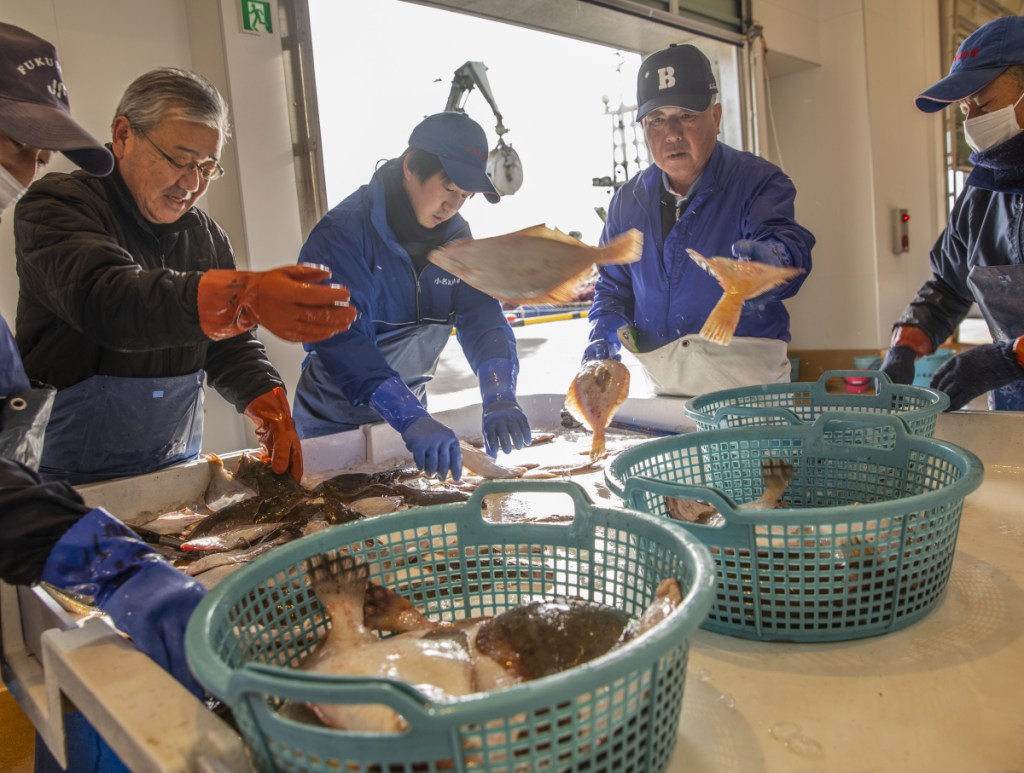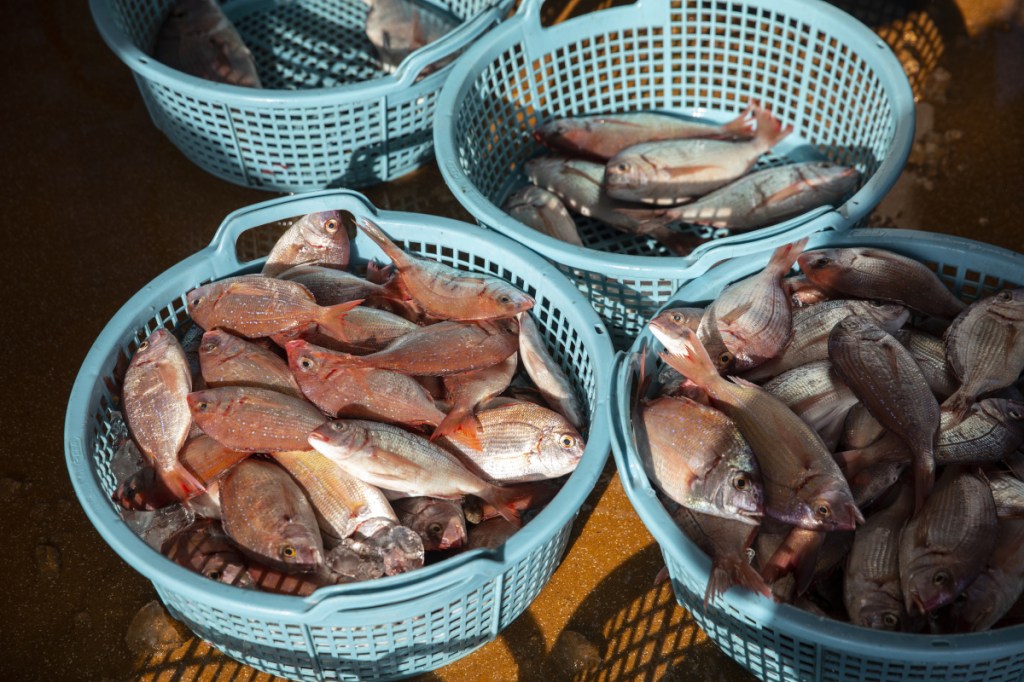FUKUSHIMA, Japan — Eight years after an earthquake, tsunami and one of the most severe nuclear accidents in history, the Japanese prefecture of Fukushima is getting back on its feet.
Officials say the area’s fruits and vegetables are fine to eat. So is the catch from the Fukushima fishing boats.
Radiation levels in the prefecture’s capital city, Fukushima, are comparable to the super-safe readings in places such as Hong Kong and London, monitors say. And a massive decontamination effort is still underway.
But facts and spreadsheets supplied by the government are one thing. Rebuilding trust among locals may be significantly harder, thanks to a culture of coverups and denials that contributed to the nuclear accident and continues to dog Japan’s efforts to restart its nuclear industry, experts say.
“A lot of challenges still need to be addressed,” Mitsuru Shoji, an official in the international affairs division of the prefecture government, said during a recent press tour. “[But] Fukushima Prefecture is regaining its strength.”
The twin natural disasters in March 2011 killed 16,000 people, and the subsequent multiple reactor explosions sent clouds of radioactive dust spewing over thousands of square miles of northern Japan, causing 165,000 people to flee their homes across 12 percent of the prefecture. Agriculture and fisheries industries collapsed as consumers steered clear of their products, and tourists shunned the region.
Most of the evacuees have gone home across the prefecture. Less than 3 percent – an area roughly twice the size of the District of Columbia – of the prefecture remains officially off limits: in the mountainous forests and ghost towns nearest the Fukushima Daiichi Nuclear Power Plant.
Huge swaths of topsoil have been removed. Potassium has been added to soil to displace the radioactive cesium that fell from the sky and prevent it entering plants through their roots.
Japan has set stringent limits on the amount of cesium allowed in food, 12 times stricter than the United States. And an agriculture testing center in the city of Koriyama has analyzed 210,000 samples of local produce, including peaches, rice, asparagus, strawberries and beef from the danger zone. At the Onahama fishing port, a similar effort monitors fish from every ocean catch.
With the exception of a handful of samples of wild mushrooms and freshwater fish, none of the samples has exceeded the radiation limits in the past three years, officials say.
Exports of agriculture, forestry and fisheries products, at one point down 98 percent, have recovered beyond pre-disaster levels, as have tourist arrivals.
Overcoming initial concerns, the percentage of locally produced ingredients in Fukushima school lunches is back where it was in 2010, and above the national average. Peaches from the area are popular in Southeast Asia, and local sake is winning national awards.
Still, at least 24 countries and territories ban some produce from Fukushima. Taiwan, South Korea and China still impose a total food ban. The United States prohibits Fukushima produce such as mushrooms, leafy vegetables and broccoli. Fishermen now only ply the seas two days a week: Fish from Fukushima, which once enjoyed a high reputation in Tokyo’s fish market, is no longer the flavor of the day.
The government blames “harmful rumors,” a phrase that dominated the two-day press tour and has been labeled the fourth disaster to hit Fukushima.
Yet there is a much deeper trust deficit that remains extremely hard to overcome.
Tokyo Electric Power Company, the operator of the ill-fated plant, spent two months after the nuclear disaster denying that a meltdown had occurred. TEPCO later apologized for a “coverup” that remains the source of much bitterness among people here.
Experts say TEPCO has still failed to come clean about the problems associated with decommissioning the reactors and decontaminating the environment.
“To me, talking about ‘harmful rumors’ sounds like they are making someone else the bad guy or villain, as if they are blaming people for saying negative things because they don’t understand science and radiation,” said Riken Komatsu, a community activist in Onahama.
“But those who have lost our trust do not have the right” to talk about harmful rumors, Komatsu added.
Send questions/comments to the editors.




Success. Please wait for the page to reload. If the page does not reload within 5 seconds, please refresh the page.
Enter your email and password to access comments.
Hi, to comment on stories you must . This profile is in addition to your subscription and website login.
Already have a commenting profile? .
Invalid username/password.
Please check your email to confirm and complete your registration.
Only subscribers are eligible to post comments. Please subscribe or login first for digital access. Here’s why.
Use the form below to reset your password. When you've submitted your account email, we will send an email with a reset code.